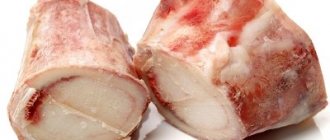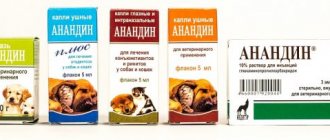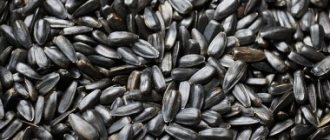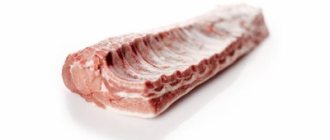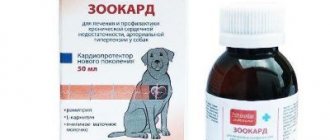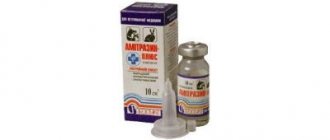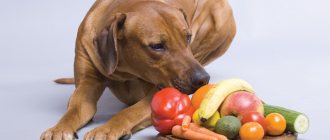The birth of cute little puppies is always a joyful event in the life of every breeder. But sometimes the joy disappears when the bitch gives up her puppies.
If an adult dog is unable to feed its children, then you will have to resort to methods such as artificial feeding. This is not an easy task that requires patience, effort and time.
Benefit
Many owners argue that dogs can be given a variety of infant formulas, justifying this decision with various reasons.
Some give baby formula to puppies, believing that it is ideal for feeding them at a young age. Others are used as dietary food. Some people simply take this food with them on the road as an analogue of normal food.
The reasons and justifications are varied, but is it really possible to give this food to dogs? Because After all, some baby food products are not harmful to dogs, so it’s best to say – not recommended .
Features of feeding an elderly dog
When a dachshund reaches old age, its body undergoes several changes. I recommend paying attention to the following points:
- Don't give your pet too much food. The fact is that older dogs are most prone to obesity, since many of them lose their previous activity. In this case, reducing the amount of food you eat is an excellent solution to the problem.
- I recommend reconsidering the balance of your diet. More carbohydrates and less proteins, fats, calories - this is the best solution. It is often recommended to feed older dogs about 18% protein. And those suffering from kidney problems have even less – 14%. Fats should be no more than 8-12% of the total food.
- Since many older dachshunds suffer from constipation, it is worth adding more fiber to their food. For example, wheat bran. They should be included in the diet even if there is no constipation yet, as a preventive measure.
- Sometimes an older dachshund begins to want to eat less. In this case, it is better to first show her to the veterinarian to rule out the presence of diseases. But sometimes it happens that an older dog finds it difficult to cope with food pellets - hence its reluctance to eat. In this case, I advise you to soak the granules with water or broth, milk or raw eggs.
- Problems with bones and joints in dachshunds are not uncommon. Especially in the elderly. In order to ensure the prevention of their diseases, I advise you to enrich the food with additives containing chondroitin and glucosamine. They are completely safe for health and, moreover, perfectly strengthen it.
Dachshund is a hunter. And this fact must be taken into account when creating a menu for her. In fact, there is nothing complicated about it, and the result is excellent!
Harm
Why is it not recommended to give baby food to dogs?
Firstly, baby food is not as filling as food specially adapted for this purpose.
Secondly, such products are more intended for people, which means they contain components that can easily harm an animal. Do not forget that the gastrointestinal tract of animals and people is different.
Thirdly, such feeding can cause vomiting, diarrhea, and an allergic reaction.
In addition to the above, mixtures can be highly addictive, causing your dog to become picky eaters.
When to go to the vet
If your dog has not eaten his normal diet for more than 2-3 days, you will need to make an appointment with your veterinarian. While some dogs may have an upset stomach for a short period of time and feeding them baby food may help them, other dogs may have a serious medical condition.
It's time to see a veterinarian if your dog does one or more of the following:
- vomit;
- diarrhea for more than 2-3 days;
- refusal of food, even from baby food;
- loss of appetite for more than 2-3 days;
- lethargic.
Offering baby food is not a long-term solution if your dog is not eating his usual food. Yes, your dog can eat most baby food flavors without harm.
Contact your veterinarian if your dog's symptoms worsen or they do not return to regular food within a few days to make sure nothing serious is going on.
—Tags
—Categories
- Dog equipment and accessories (3)
- Our smaller brothers (14)
- Rules for the transportation of animals (6)
- Harmful Customer (10)
- Dog shows (6)
- Dog genetics (12)
- Dogtraining (5)
- Dog training (12)
- Other dog breeds (7)
- Here you can choose a puppy and a young dog (0)
- Dog health (66)
- Angry Vet (4)
- Evil Breeder (45)
- Dog dental system (8)
- Internet to help (18)
- Calendar (5)
- Feeding dogs natural food (21)
- Feeding dogs dry food (15)
- Dog behavior correction (40)
- MAEBY FAY nursery graduates (217)
- Our VICTORIES and awards (14)
- Features of dog behavior (42)
- Breeding dogs (31)
- Before you buy a dog (71)
- Stories about dogs (4)
- Child and dog (9)
- Celebrity dogs (6)
- Breed standard (9)
- Grooming (21)
- Hobbies (150)
- Chihuahua from MAEBY FAY kennel (18)
- Spitz dogs from MAEBY FAY nursery (20)
Is it possible to feed?
Dairy nutrition
Some breeders use such mixtures if their animal is sick and is unable to chew hard food on its own.
You can give formula milk, but first pass it through calico to avoid excessive sugar (grains of sugar are larger than the mixture).
This option is also often used on the road, but do not neglect it; a couple of times a week is enough to diversify the diet and not harm your pet’s health.
Dairy-free
Dairy-free infant formula is almost the same as milk formula. They differ only in the addition of milk. This type of mixture is safer for feeding, but is still undesirable for adult dogs.
Possible problems
Even with strict adherence to all of the above recommendations, a number of problems may arise during the care process. These include:
- Lack of satiety or overfeeding.
The first condition is easily recognized by the lack of weight gain, restless sleep and constant whining, and the second by greenish stool.
- Constipation or diarrhea.
In addition to consistency, you should monitor the color. If the natural shade has changed, consult your veterinarian
- Insufficient weight gain.
On days 8-10, the initial weight doubles. If there are no changes, your pets should be booked for examination at the nearest veterinary clinic - or invite a specialist to your home.
- Hypoglycemia, or low blood glucose levels.
The risk group includes dwarf breeds. The main symptoms are loss of appetite, chills, abnormal bowel movements, weakness, unsteadiness of gait.
- Inflammation of the navel.
Develops when asepsis is not observed during childbirth and the “nest” is not regularly cleaned. Without timely treatment, inflammation is complicated by sepsis.
- Conjunctivitis.
Occurs when the palpebral fissure becomes infected before it opens. The main symptoms are purulent discharge, swelling and redness of the eyelids.
- "Swimmer's Syndrome"
A genetic disorder that appears at 2-3 weeks of birth. A sick pet is unable to stand on its legs and makes “swimming” movements with them.
- Dehydration.
In addition to a lack of fluid in the diet, it is provoked by low humidity in the room.
Despite some difficulties, artificial feeding is almost as good as natural feeding. By preparing a high-quality diet, observing the frequency of feeding and proper care of newborns, you can raise healthy and strong dogs, no different from those who grew up with their mother.
Do you like the article? 0
How to give?
For adult dogs
If baby food was included in the diet, it is best to give it no more than twice a week, as a treat or added to other foods.
Before choosing such food, you should familiarize yourself with the list of prohibited foods for dogs. Foods that are harmful to dogs are: raisins, garlic, onions, grapes, etc. Therefore, you need to carefully study the composition.
Important! In order not to harm your pet, you need to carefully read the composition and follow the instructions.
For puppies
Nowadays, there are many different analogues of dog milk, but infant formula can also be used. It is worth considering that puppies have very weak immunity, so you must follow all the rules of admission and correct feeding.
Prepare this mixture in certain proportions:
- 0.5 liters of milk;
- 1 raw yolk;
- liquid vitamins;
- sometimes, if desired, add a spoonful of honey or 40% glucose.
When feeding this way, they usually keep a diary in which they record information about the amount of food consumed and the growth of the babies. Such a diary is filled out daily for each of the puppies, and they are weighed every three days.
The frequency and feeding of puppies with infant formula directly depends on the age of the babies and their well-being.
Newborns
A puppy can be fed this mixture from birth, but only if there are no other options left. Receiving the right amount of food and not getting sick, its growth will increase according to the following scheme:
- a week after birth, the weight will increase 3 times;
- in two weeks it will increase 5 times;
- after three weeks – 7 times;
- at the age of a month, the puppy's weight will be 10 times different from the weight when it was born.
The number of feedings from the 1st to 10th day is 10-12 times a day, from the 10th day you can reduce it to 8 feedings, and from three weeks the puppy should receive 6 feedings a day.
The first feeding should be done around 6 am, and the last one as late as possible - at 10 pm. The mixture must be at room temperature and fresh, otherwise the baby may become ill and die.
Serving Size
The amount of food a dog consumes is usually calculated based on the animal's body weight. The norms are quite arbitrary. Puppies of the same age and breed can consume different amounts of food. It all depends on metabolism, level of physical activity, time of year, and so on. The criterion is the physical condition of your furry friend. If the puppy gets fat, we cut the portion, and if he loses weight, we add accordingly.
You can find out in more detail how to determine the amount of food offered to a dog by reading the material: How much food should be given to a dog on a raw food diet.
These are roughly the basic principles of feeding raw natural food to puppies. As you already understand, there is nothing complicated about feeding your dog raw foods.
Good luck and take care of your pets!
Could it get bad?
In fact, a dog can become ill from any food if it has overeaten or tried it for the first time (out of habit).
If you decide to add baby food to your diet, then in the next couple of hours be prepared to put aside everything you are doing to monitor the dog’s condition. The reaction may vary.
Some dogs tolerate new food calmly, even better than they would like: skin problems disappear, the dog becomes more energetic, etc.
But it also happens the other way around. A dog is a predatory creature by nature, so it does not assimilate plant foods well, including the vitamins it contains.
Therefore, if you notice that your pet is feeling unwell (lethargy, nausea), it is best to temporarily remove such supplements from his diet, or eliminate them altogether.
What should you not give to dachshunds?
The next thing to understand is that pets need to eat differently from humans. What seems tasty to a person can be harmful to a dog.
And here’s what dachshunds absolutely cannot:
- Pork is meat, but I categorically do not recommend giving it. She is overly fat for a dog. In addition, such meat feeding can give your pet parasites.
- Tubular and boiled bones can clog the intestines quite strongly. Therefore I cannot recommend them.
- Sausage, smoked meat - even if the dachshund begs to share such a delicacy, I advise you to immediately remember how much harmful things it contains for the dog.
- Chocolate and confectionery dishes have a terrible effect on a dog’s tooth enamel. Also, the gastrointestinal tract will not say “thank you”.
- Foods with high fat content – it is important to abstain from them even if they seem healthy. This is, for example, sour cream. Even if it is natural, it is better not to try it. She should also not eat fried foods, margarine, or butter.
- Onions, garlic - irritate the stomach walls. Previously, there was an opinion that they were good for treating worms. But I will classify this point of view as a myth.
Juices and purees
Here again you need to start from the composition of the product, excluding all possible additives that could harm the animal.
You can give juices and purees to your dog, but not too often and in small quantities so as not to cause an allergic reaction. Most often, this delicacy is mixed into regular food, as a supplement, no more than two to three times a week.
For puppies, 1-2 teaspoons are enough. Complete replacement of natural food with baby food is not allowed; this can lead to diabetes and obesity in the animal.
Attention! There are no exceptions for individual breeds.
Vitamin supplements for a puppy
Vitamin and mineral balance is very important for the body of any living creature. If the basis of a dachshund’s diet is dry food, then there is no need to supplement it with other supplements; its composition is balanced. But natural feeding requires an additional approach, since an imbalance of nutrients has a detrimental effect on the dog’s internal organs.
A nutritionist can prepare the correct diet; he will also select the necessary vitamin supplements and calculate their quantity.
Reviews
Looking through different forums and websites, you can see a division into pros and cons. Based on everything we’ve read, we can only say one thing: as many people, so many opinions.
Each type of feeding depends on the animal’s well-being, allergic reactions and contraindications.
One man expressed his opinion like this: “If he eats, then why not?” But is this right? If you look at it, many dogs don’t eat anything, but their health doesn’t get better from it.
The woman said that “You need to feed the dog what you eat yourself - it will be healthier.” It turns out funny, because we also eat food that is far from healthy.
Another argued that “Absolutely not. There are special canned food, porridge and mixtures for puppies and adult dogs.”
In fact, she is right about something. Why experiment with what is intended for a child, if there are specially developed and tested mixtures for our animals? Yes, the price may be steep, but you don’t have to worry so much about your health.
Industrial feed
This type of food also has its pros and cons.
Advantages:
- The food is sold ready-made;
- No need to waste time on preparation;
- These foods have a varied composition, you can choose according to your dog’s taste;
- Artificial food is already completely balanced, the dog receives all the necessary vitamins;
- There are foods specifically for dachshunds;
- Premium food and higher do not pose any harm to the health of the animal.
Flaws:
- There is no guarantee that the packaging contains the correct composition of the product;
- The composition contains various flavoring additives, emulsifiers and preservatives;
- Incorrectly selected food will cause allergies;
- Cheap food does not contain meat, but soy and low-quality by-products. This provokes diseases.
NOTE!
Many breeders still prefer artificial food, believing that it is a complex of all the vitamins necessary for a dog.
There are also two types of industrial feed - dry and wet. Some owners choose just one, but the best option is to combine them.
For example, a dog receives wet food for breakfast and dry food for lunch. This is a great way to maintain water balance in the animal's body .
Plus, dry food lasts longer, and you can easily remove the bowl if the animal does not finish the food and leave it for the next meal.
As already mentioned, there are specialized foods for dachshunds:
- Summit food;
- ANF Holistic food;
- Farmina N&D food;
- Guabi Natural food;
- Wolfsblut dry food.
There are 4 classes of dog food - economy, premium, super premium and holistic . The best food for dachshunds should be super premium or holistic.
What to replace it with?
Baby food for dogs can be better replaced with ready-made formulas - analogues of bitch milk. Nowadays, there is special milk for sale for puppies, which contains all the most necessary nutritional elements.
This milk is easy to prepare and does not cause digestive disorders. But many people prefer to prepare nutritional mixtures themselves to be sure of their composition:
- The first recipe is 0.5 liters of boiled cow's milk and 1 beaten egg yolk.
- The second is one tablespoon of powdered milk, 0.25 liters of boiled cow's milk. Carefully place until all lumps are completely dissolved, strain through a strainer and cool to 38 degrees.
- The third mixture is 4 teaspoons of concentrated milk without sugar, 3 teaspoons of boiled water, one yolk.
Goat's milk is also a good substitute, because... it is very similar in composition to bitch.
If you are not used to doing everything yourself and trust store-bought mixtures more, with the idea that since they are on sale, it means they have been tested and safe - this is especially for you:
- Milk formula MD mil Kozochka . Powdered milk formula (from 0 to 6 months). The price of such a product is about 700 rubles.
- Kabrita mix . Designed for feeding from 0 to 6 months. Price: From 1100 and above (depending on weight).
- Blend ON Combiotik . From the first days of life. The price ranges from 700 rubles and above.
- Similac mixture . From 0 to 12 months. Price: from 150 rubles and above.
- Nestogen Blend . From birth to six months. Price: from 240 and above.
Menu for a puppy
The basis of a puppy's diet, of course, is milk. After one month of age, dishes are supplemented with meat and vegetables. What does the menu for a 4-month-old puppy consist of?
Menu No. 1
For breakfast: mix cottage cheese and yogurt, add a little honey and chopped walnuts.
For lunch: take equal quantities of diced meat, grated carrots and buckwheat porridge, add a spoonful of olive oil and dilute everything with broth.
For dinner: mix stewed pumpkin and boiled rice in equal quantities, add two parts of boiled fish, one tablespoon of sunflower oil and a spoonful of herbs. Dilute the mixture with fish broth.
During the day, you can treat the puppy with a cracker, a piece of apple or cheese.
Menu No. 2
For breakfast: add one part yogurt to two parts oatmeal. Season the porridge with grated apple, pear or apricot.
For lunch : take two parts of beef, boil, mix with one part of boiled pumpkin and boiled millet in the same amount. Season with herbs and vegetable oil. Bring to the required consistency, gradually adding broth.
For dinner: mix an egg with grated boiled beets, add kefir and mix everything thoroughly.
During the day, we treat the pet with carrots, dry food or a piece of squid.
Thus, you can create individual menus for each dog, taking into account its preferences and the list of allowed products.
Dry food
Dry food is the undoubted favorite of many owners . There is a wide variety of it on store shelves, but only the highest classes are suitable for dachshunds - super premium and holistic.
Premium food rating:
- Pro Plan;
- Royal Canin;
- Probalance;
- Advance;
- Brit Premium;
Premium food is far from ideal and is not suitable for everyday feeding. They are also based on by-products, and although there are more vitamins than in economy class food, they are still not enough.
Super premium food rating:
- Brit Care;
- Pronature Original;
- 1st Choice;
- Josera;
- Fitmin;
- Monge;
- Dukes Farm.
Rating of holistic feeds:
- Orijen;
- Savarra;
- Canidae;
- Grandorf;
- Now Fresh;
- Acana.
The last two classes of food are the most expensive, but by choosing them, you can be sure that the dog will not only be healthy, but will also receive all the necessary elements for health.
